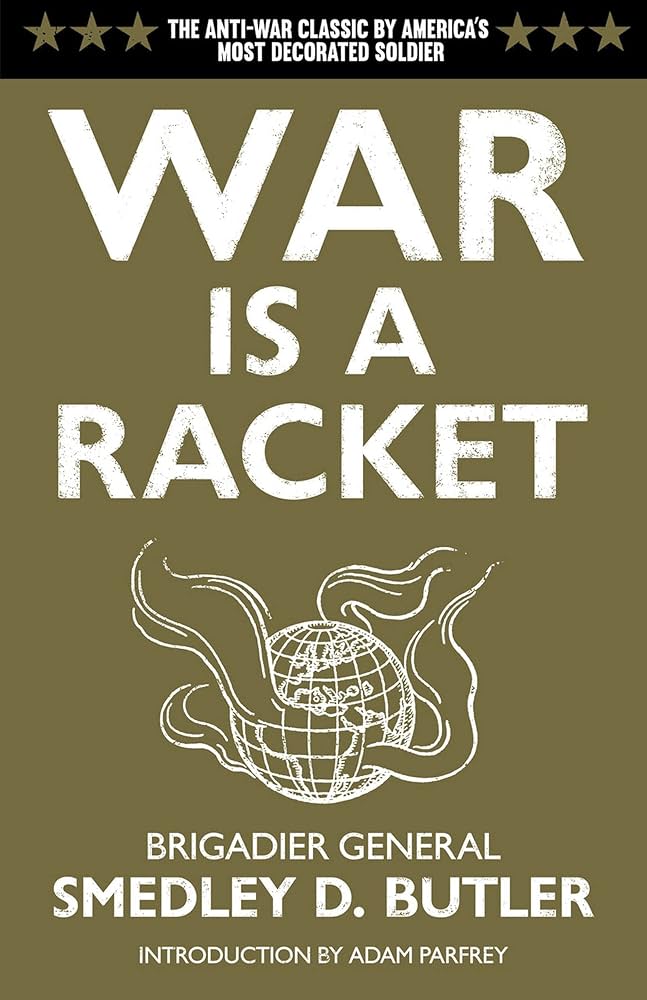Smedley Darlington Butler, born in 1881, is remembered as one of the most decorated Marines in U.S. history, having received the Medal of Honour twice for his service. His military career spanned over three decades, during which he participated in various conflicts, including the Boxer Rebellion and World War I. Despite his illustrious career, Butler grew increasingly critical of the motivations behind U.S. military actions. After his retirement in 1931, he channeled his experiences and insights into “The War Racket,” published in 1935, wherein he exposed the darker side of war and the economic interests that often drive it.
Butler’s primary assertion is that wars are waged not for democratic or humanitarian reasons but for economic gain. He meticulously details how corporations and financiers benefit from wartime spending. For example, he recounts how industries involved in manufacturing arms, ammunition, and other wartime necessities see substantial profit increases during conflicts. Butler argues that this economic gain often comes at a high human cost, with soldiers’ lives and taxpayers’ money sacrificed for the sake of corporate profit margins.
The book explores the mechanisms through which political leaders manipulate public opinion to support wars. Butler describes how propaganda and patriotic rhetoric are employed to create a sense of urgency and moral duty among the populace. He highlights instances where leaders have exaggerated threats or fabricated incidents to justify military action, thereby concealing the true economic motives behind such decisions. This manipulation, Butler argues, serves to rally public support and divert attention from the financial beneficiaries of war.
Butler provides a comprehensive analysis of the true costs of war, beyond the immediate economic expenditure. He emphasises the profound human cost, including the loss of life, the long-term physical and psychological impact on veterans, and the suffering of civilians caught in conflict zones. Additionally, he addresses the financial burden on nations, which often face increased debt and economic instability in the aftermath of war. Butler contends that these significant costs are frequently overshadowed by the economic benefits enjoyed by a privileged few.
Beyond critique, Butler’s work serves as a passionate call to action. He advocates for greater transparency and accountability in the decision-making processes that lead to military intervention. Butler urges citizens to remain sceptical of the official narratives provided by political leaders and to demand that their governments prioritise diplomacy and peaceful resolution of conflicts. He calls for a reevaluation of national priorities, suggesting that resources spent on war could be better utilised in addressing domestic issues such as poverty and infrastructure.
Since its publication, “The War Racket” supporters have lauded Butler for his bravery in speaking out against powerful economic and political interests. They appreciate his candid and insider perspective on the true motivations behind war.
In Britain, “The War Racket” has resonated particularly with those sceptical of recent military engagements and critical of the defence industry’s influence on government policy. The book has sparked important discussions about the need for reform in how military decisions are made and has encouraged greater scrutiny of the economic interests that may be at play. It has contributed to a broader movement advocating for a more ethical and transparent approach to national defence and foreign policy.
“The War Racket” remains a compelling and thought-provoking work. Smedley D. Butler’s critique of the economic motivations behind war continues to challenge readers to reconsider the justifications for military interventions. In an era where defence spending and military actions are subjects of ongoing debate, Butler’s call for greater scrutiny and accountability is as pertinent as ever. His work encourages a more critical examination of the true costs of war and the interests that often drive nations to conflict, promoting a more informed and conscientious approach to international relations and national security.
KEEP US ALIVE and join us in helping to bring reality and decency back by SUBSCRIBING to our Youtube channel: https://www.youtube.com/channel/UCQ1Ll1ylCg8U19AhNl-NoTg AND SUPPORTING US where you can: Award Winning Independent Citizen Media Needs Your Help. PLEASE SUPPORT US FOR JUST £2 A MONTH https://dorseteye.com/donate/







